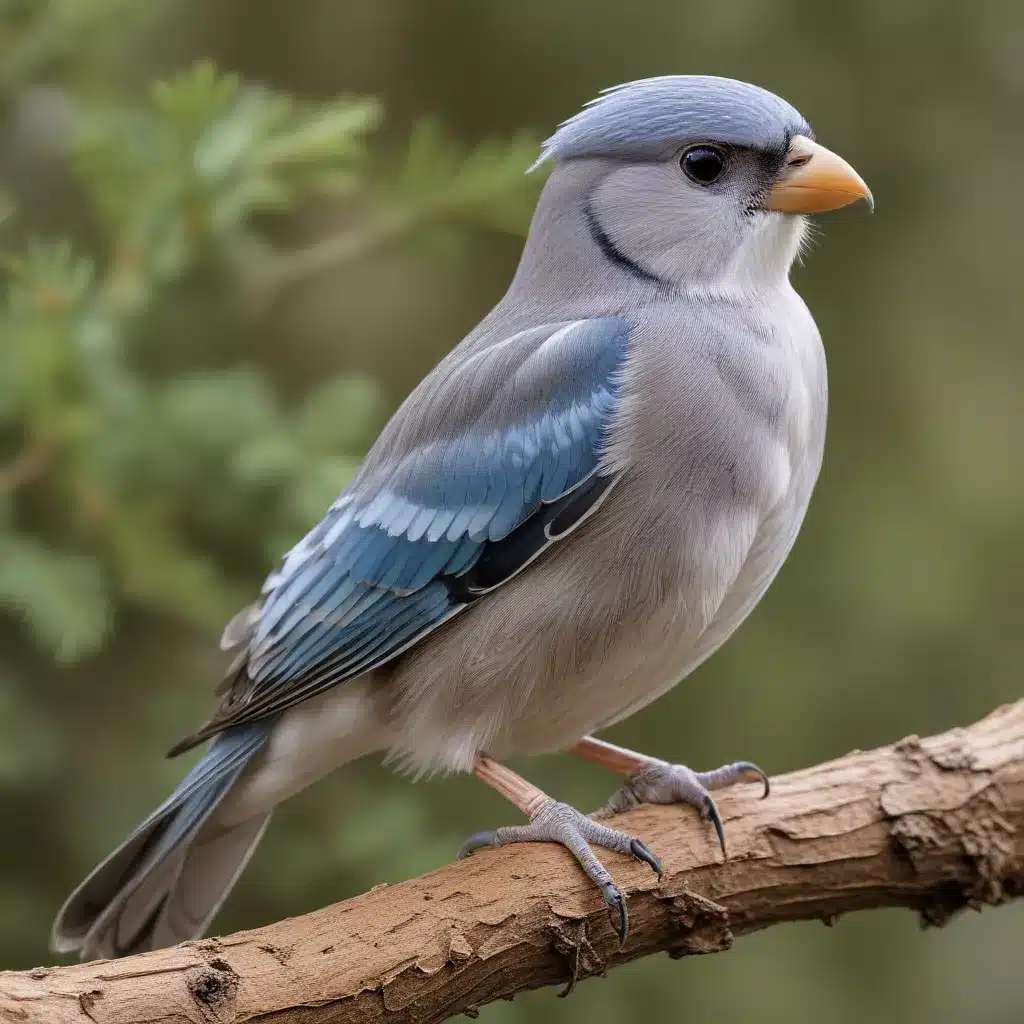
Avian Behavior and Aging: Addressing the Unique Needs of Senior Birds
As an experienced avian caretaker, I’ve had the privilege of witnessing the incredible transformations that can occur when senior birds receive the specialized care they deserve. These feathered companions, with their unique personalities and endearing quirks, deserve to thrive in their golden years – and with the right approach, we can help them do just that.
Avian Physiology and Aging
To understand the specific needs of older birds, we must first explore the anatomical and sensory changes that accompany the aging process. Just like humans, birds experience a gradual decline in various bodily functions as they grow older.
One of the most notable changes is in the feathers. As birds age, their feathers may become dull, brittle, and prone to breakage. This is due to a decrease in the production of the natural oils that help maintain feather health and structure. Older birds may also experience a slower rate of feather regrowth during molting, which can leave them vulnerable to temperature fluctuations and environmental stressors.
Sensory capabilities also tend to diminish in senior birds. Hearing and vision often decline, making it more challenging for them to navigate their environment and detect potential threats. This increased vulnerability can lead to heightened anxiety and a reluctance to explore their surroundings, further compounding the challenges of aging.
Behavioral Patterns of Senior Birds
Observing the behavioral patterns of older birds is crucial for understanding their unique needs and providing the appropriate care. As birds age, they may exhibit decreased activity levels and mobility, often preferring to perch in one spot for extended periods.
This reduction in physical activity can be attributed to a variety of factors, including joint pain, muscle weakness, and decreased stamina. Senior birds may also become more hesitant to engage in vigorous behaviors, such as flying or climbing, due to a heightened risk of injury.
In terms of social interactions, older birds may display subtle changes in their flock dynamics. They may become less assertive, preferring to take a more passive role within the group. Additionally, they may exhibit increased sensitivity to environmental stimuli, such as sudden noises or the introduction of new objects, which can lead to heightened stress and anxiety.
Nutritional Needs for Aging Avians
Maintaining proper nutrition is essential for supporting the overall health and well-being of senior birds. As birds age, their dietary requirements may shift, and it’s crucial to adapt their feeding regimen accordingly.
One of the primary considerations is the bird’s caloric intake. Older birds often have decreased activity levels, which can lead to a reduced need for high-energy foods. Adjusting the diet to include more easily digestible proteins, while reducing the overall caloric content, can help prevent obesity and its associated health risks.
In addition to caloric considerations, senior birds may benefit from increased levels of certain vitamins and minerals. For example, supplementation with calcium and vitamin D can help support bone health and prevent conditions like osteoporosis. Antioxidants, such as those found in dark, leafy greens, can also play a vital role in combating age-related inflammation and supporting overall immune function.
Incorporating a variety of nutrient-dense foods, including cooked grains, fresh vegetables, and occasional fruits, can help ensure that senior birds receive a well-rounded and balanced diet. Regular monitoring of their weight and overall condition can help guide any necessary adjustments to their feeding routine.
Healthcare for Geriatric Avian Patients
As birds age, they become more susceptible to a variety of health concerns, and it’s essential to be proactive in addressing these issues. Regular veterinary check-ups are crucial for early detection and effective management of age-related conditions.
Common health problems in older birds can include arthritis, kidney disease, heart conditions, and hormonal imbalances. Chronic respiratory issues, such as asthma or chronic bronchitis, may also become more prevalent. Vigilant monitoring and prompt treatment of these conditions can significantly improve the quality of life for senior birds.
In addition to regular check-ups, preventive measures can go a long way in maintaining the health of older birds. Providing a comfortable, low-stress environment, with easy access to food and water, can help minimize the risk of injury and reduce the overall burden on the bird’s body.
Environmental Adaptations for Senior Avians
Creating a bird-friendly environment that caters to the unique needs of senior birds is essential for their well-being. Modifying the cage setup and enrichment items can make a significant difference in their quality of life.
One of the key considerations is accessibility. Lowering perches and providing more stable, wider platforms can make it easier for older birds to move around and rest comfortably. Incorporating soft, padded substrates in the cage can also help cushion falls and reduce the risk of injury.
Adjusting the lighting and temperature in the bird’s living space is another important factor. Mimicking natural light cycles and maintaining a stable, comfortable temperature can help support their circadian rhythms and minimize stress.
Enrichment activities, such as puzzle feeders and foraging opportunities, can also play a crucial role in keeping senior birds mentally stimulated and engaged. By providing a variety of activities tailored to their abilities, we can help prevent boredom and the associated behavioral issues that may arise.
As we navigate the unique journey of caring for senior birds, it’s essential to remember that each feathered friend is an individual with its own set of needs and preferences. By approaching their care with empathy, patience, and a commitment to continuous learning, we can ensure that our avian companions enjoy their golden years to the fullest.
At Mika Birds Farm, we understand the importance of providing specialized care for senior birds. Our team of experienced avian experts is dedicated to helping you address the unique challenges and needs of your feathered friend, ensuring their health, happiness, and longevity. Whether you’re adopting a senior bird or caring for an aging companion, we’re here to guide you every step of the way.


